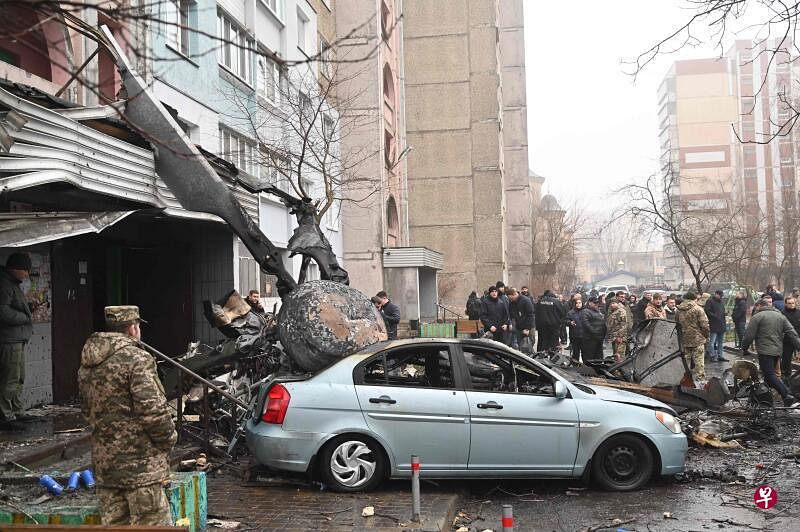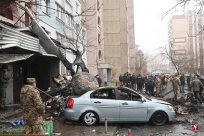
On February 24, 2022, the Russian army entered Ukraine and became the world's largest black swan incident.Russia and Ukraine had suffered heavy casualties and a large number of refugees fled, leading to a humanitarian crisis.In addition to the warring country, the impact of war affects the world.The price of energy and food has continued to be pushed up, making inflation in many countries around the world set the highest record for many years.It also exacerbates the contradictions of geopolitical politics, causing global security to be highly tight.
The worst wars that were known as the World War I Second World War have not yet shown a ceasefire.Russia is gathering the army to prepare to start a large spring offensive; Ukraine has obtained a large number of military aid in the West, including long -range artillery and main battle tanks, and further requests fighters to defeat and defeat Russia on the battlefield.
For a year of war, Russia could not decide as quickly as possible, and even if Ukraine received a large number of military aids in Western countries, it has not been able to recover all the land.
Even so, both sides fight for survival.For Russian President Putin, the victory of this war is related to the safety of Russia and his personal regime; for Ukraine, it is related to whether the country will disappear in the map.Therefore, even though the two sides showed to end the war as soon as possible, the foundation of peace talks was very weak.
Ukrainian President Zeleiski pointed out that the prerequisite for peace talks is that Russia must first withdraw from Ukraine, including Crimea, occupied by Russia in 2014.Putin showed that Ukraine must accept the reality of the battlefield, and there is no possible peace talks without setting conditions.
The Russian and Ukraine Warfare decided to discuss the victory and defeat on the battlefield, and the consequences were difficult.If Russia occupies the upper hand, Western countries may be forced to provide more advanced weapons to Ukraine, causing them to be involved in the war directly; if Russia is at a disadvantage, it has shown that the world will not be able to use nuclear weapons, and the world will not return.
On the eve of the first anniversary of the war in Russia, US President Bynden accidentally visited Kiev and reiterated that "the United States stands together with Ukraine, and it will not shake."Putin pointed out in the Counselor of the National Love on Tuesday (February 21) that Western countries have provoked the global war in order to destroy Russia and threatened Russia's survival.He vowed to continue his military operations in Ukraine.
The conversation between Putin and Biden reflects the risk of the Russian and Ukraine war, and may spread to other European countries.For the Asia -Pacific region, the geopolitical conflict of Europe is far and near, and many Asia -Pacific countries have been directly or indirectly involved in it.
In July last year, South Korean President Yin Xiyue and Japanese Prime Minister Kishida Kishida were invited to participate in the NATO Summit in Spain as an observer.Recently, NATO Secretary -General Stoltenberg visited South Korea and Japan and asked South Korea to provide weapons to Ukraine.
Stoltenberg claims that the war that will occur today may occur in East Asia tomorrow.He described Europe's security to the Asia -Pacific region, and that China and North Korea threatened regional security.Beijing was deeply dissatisfied and uneasy about "NATO Asia Pacific", and Pyongyang referred to Stetenberg's visit to Asia to allow the region to take another step in the outbreak of the "extreme security crisis".
The Russian war has also further exacerbated the strategic competition and tension between China and the United States in the region.After the balloon storm, U.S. Secretary of State Brillings pointed out that China is considering providing weapons and ammunition for Russia, and warns that this will "serious problems" to Sino -US relations.China has denied this allegations and shows that the United States is not qualified to give orders to the Chinese side, and China never accepts the United States' "fingering and feet" with China -Russia relations.
Dr. Huang Yonghong, the Minister of Defense, pointed out at a security conference held at Munich, Germany that more countries have strengthened military deployment in the region, including some countries far away from the region.In addition, the existing alliances in the region are strengthening, and new cooperation organizations are also emerging, including Sifang Security Dialogue and Australian -British and American Alliances consisting of the United States, Japan, India, and Australia.China recently held a joint naval exercise with Russia and Iran.
He described that these "early deployment" in the region were quite active, although the sound of war drums has not yet sounded.However, this area is in a safe environment that is not very comfortable.The Taiwan issue may cause conflict, and the first world war showed that small events could also cause major conflicts.He warned that if the war occurred in Asia, it would not only bring catastrophic consequences to the area, but also affecting the world.
The war of Russia and Ukraine shows that once the war is ignited, it is difficult to clean up the disabled.There are multiple potential fire points in the Asia -Pacific region, and it is about to move.Regional countries should show collective restraint and wisdom, resolve contradictions through diplomatic channels, and avoid troops to meet each other.


